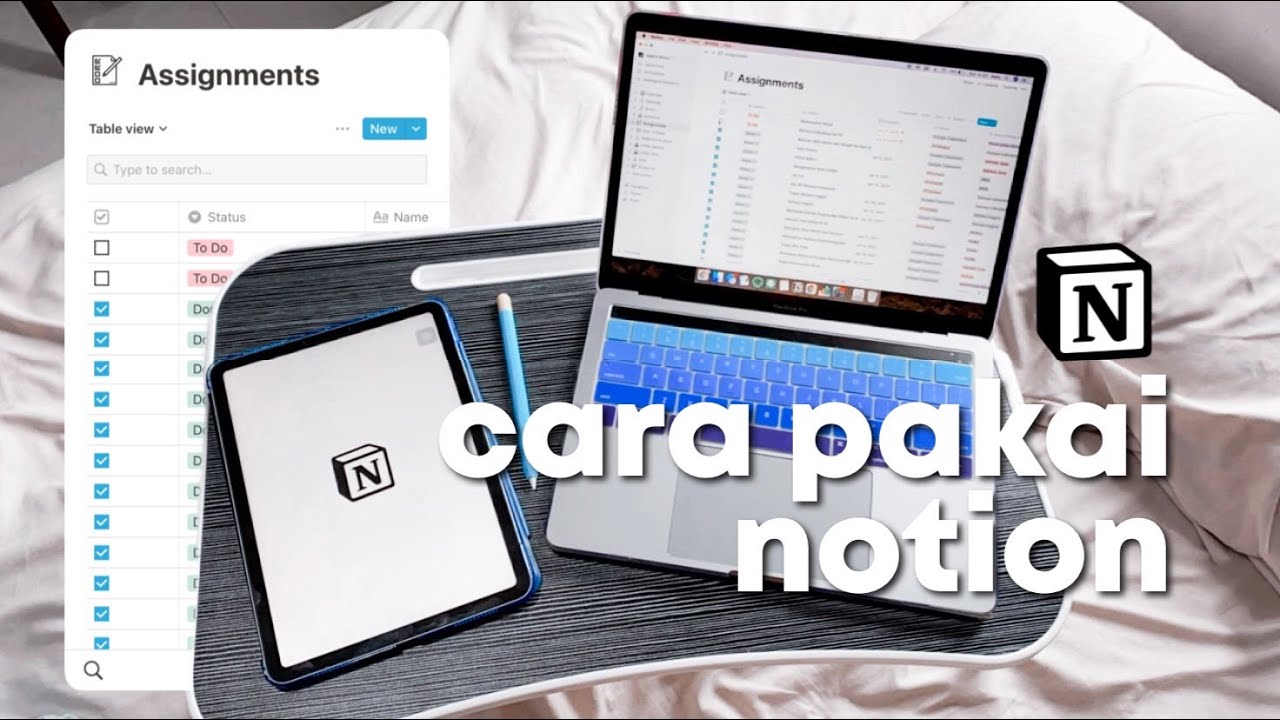O Sistema de Produtividade Perfeito
Summary
TLDRThis video script outlines a three-step productivity system to help manage tasks and organize life efficiently. Step one focuses on capturing tasks to prevent forgetfulness and anxiety. Step two involves filtering and directing tasks to the right place, such as task apps, note-taking for future ideas, calendar for events, and cloud storage for files. The third step emphasizes regular reviews, ideally with a partner, to ensure alignment with goals and to bounce back from life's disruptions.
Takeaways
- 📝 **Capture Tasks**: The first step to productivity is capturing tasks to prevent them from causing anxiety and disrupting your day.
- 📱 **Use Apps**: Use apps that sync across devices to manage tasks, making it easier to capture and organize them.
- 📑 **Avoid Paper**: Avoid using paper and pen for task management as it can lead to disorganization and lost tasks.
- 🔍 **Filter and Direct**: Once tasks are captured, filter and direct them to the appropriate place, like task lists, notes, or calendars.
- 🗓️ **Task Lists**: Use task lists for immediate tasks and keep them in one place for easy access.
- 📚 **Note Lists**: Keep a list for things you might need in the future, like books to read or places to visit.
- 🏷️ **Use Tags**: Use tags to categorize and easily find items in your task manager.
- 📅 **Calendar for Events**: Use a calendar for time-specific events and share it with others to coordinate schedules.
- 📁 **File Management**: Organize files in cloud storage for easy access and backup.
- 💡 **Store Ideas**: Use apps like Obsidian to store and connect ideas and knowledge.
- 🔄 **Regular Reviews**: Regularly review your system with a partner to ensure you're staying on track with your goals and tasks.
Q & A
What is the main issue with productivity according to the speaker?
-The main issue with productivity is the constant influx of random thoughts and tasks that need to be done, which leads to a loop of anxiety and forgetfulness, making it hard to focus on what exactly needs to be done.
What is the first step in the speaker's three-step productivity system?
-The first step is 'captura' or capturing, which involves noting down all the random thoughts and tasks that come to mind to prevent them from causing anxiety and becoming urgent issues later.
Why does the speaker recommend using an app for capturing tasks instead of pen and paper?
-The speaker recommends using an app because it can be accessed from both mobile and desktop devices, centralizing the task list and preventing the user from getting lost in piles of paper.
What are some of the apps the speaker suggests for task management?
-The speaker suggests using apps like 'Things' for Apple users and 'Trello' as a free alternative that works well for both individual task management and collaborative projects.
What is the second step in the speaker's productivity system?
-The second step is to filter and direct the captured tasks to the right place, which could be a task app, a list, a calendar, or a file management system.
How does the speaker categorize tasks in the task app?
-The speaker categorizes tasks into tasks that need to be done, lists for future reference, events for the calendar, files for document management, and ideas for knowledge retention.
What is the purpose of using tags in the speaker's productivity system?
-The purpose of using tags is to add an extra layer of organization to the lists, making it easier to find specific items when needed without having to go through each folder.
How does the speaker handle events in their productivity system?
-The speaker handles events by entering them into a calendar, such as Google Calendar or iOS Calendar, to ensure they are not late for meetings and to keep their life organized.
What is the role of the third step in the speaker's productivity system?
-The third step is about reviews, where the speaker suggests having a weekly conversation with a partner to discuss goals, feelings, and challenges to ensure getting back on track with routines and planning for the next cycle.
Why is having a partner for accountability important in the speaker's productivity system?
-Having a partner for accountability is important because it helps to ensure that you return to your good routines more quickly and makes it easier to plan for the future when life gets chaotic.
What are some of the other videos the speaker recommends for different aspects of productivity?
-The speaker recommends other videos for remembering everything you read and study, aligning tasks with life goals, and being efficient in task execution.
Outlines

This section is available to paid users only. Please upgrade to access this part.
Upgrade NowMindmap

This section is available to paid users only. Please upgrade to access this part.
Upgrade NowKeywords

This section is available to paid users only. Please upgrade to access this part.
Upgrade NowHighlights

This section is available to paid users only. Please upgrade to access this part.
Upgrade NowTranscripts

This section is available to paid users only. Please upgrade to access this part.
Upgrade NowBrowse More Related Video
5.0 / 5 (0 votes)





